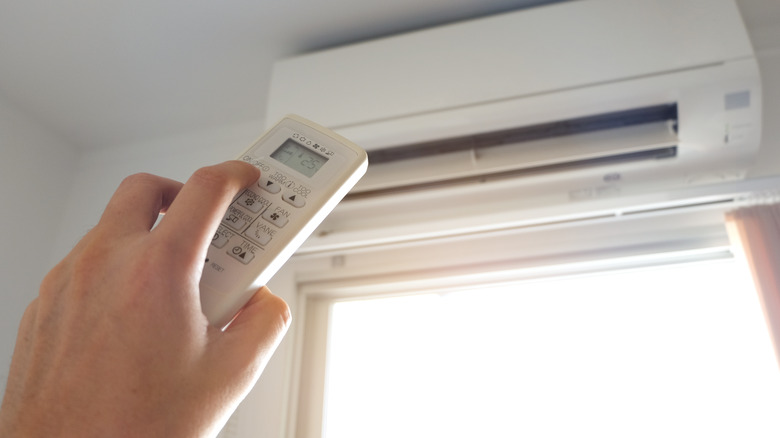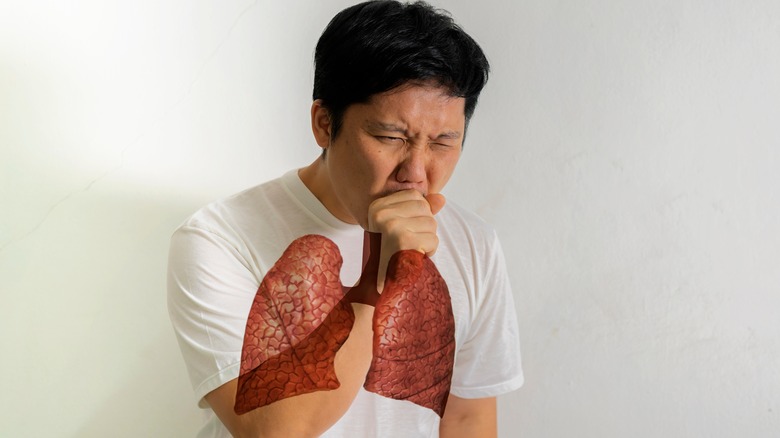Why Your AC May Be Making You Cough
The quality of the air in our house can affect our health in both big and small ways. According to the U.S. Environmental Protection Agency (EPA), different indoor air pollutants can cause various side effects ranging from eye irritation, dizziness, respiratory disease, and more. Air conditioning systems help ensure the circulation of clean air in our homes, explains JW Pierson Co. In some cases, however, your AC unit may actually be to blame if you've noticed you've been coughing more than usual.
First and foremost, check your AC filter. A cough could signal that it's time to swap out your old filter for a new one. JW Pierson Co. explains that while AC filters are efficient at trapping aggravating allergens such as dust, pet dander, and more, they can only do so for so long. Eventually, all that buildup will prevent the filter from working properly and may even end up being recirculated back into the air. Try to give your AC filter a look-over roughly every six weeks. If you have more severe allergies, this may need to be done sooner, such as every month, says Air Conditioning & Heating Classic Services. If the filter seems pretty full, either swap it out for a new one or clean it if it's reusable. Additionally, consider using a pleated medium-efficiency AC filter over a flat-panel filter, which doesn't remove as many contaminant particles.
What is air conditioner lung?
Similar to how wintertime air can dry out our airways (via Mayo Clinic), so can the air from our air conditioning, explains Elite Electric and Air. While an AC unit provides us with cool air, it also strips the air of humidity, leaving some people susceptible to cough-variant asthma. According to WebMD, the dry cough that characterizes cough-variant asthma can be prompted by allergens, strong scents, or cold air. Elite Electric and Air suggests keeping your thermostat at a warmer temperature if you find your cough is triggered by cold, dry air. Setting your thermostat between 72 degrees and 75 degrees Fahrenheit may help relieve symptoms. Alternatively, a humidifier can help restore moisture to the air.
In more severe cases, you may be experiencing "air conditioner lung," explains American Home Shield. Sometimes also referred to as "humidifier lung," the condition is a form of hypersensitivity pneumonitis, per the American Lung Association. Although rare, those with hypersensitivity pneumonitis often experience flu-like symptoms in response to specific allergens. In cases of air conditioner lung or humidifier lung, the allergic reaction is caused by inhaling mold or fungus growing within these devices. Symptoms may include fever, chills, shortness of breath, cough, or more. American Home Shield notes that without treatment, air conditioner lung can lead to additional health issues. Therefore, it's important to keep up with regular maintenance to ensure you're breathing in clean, healthy air.


